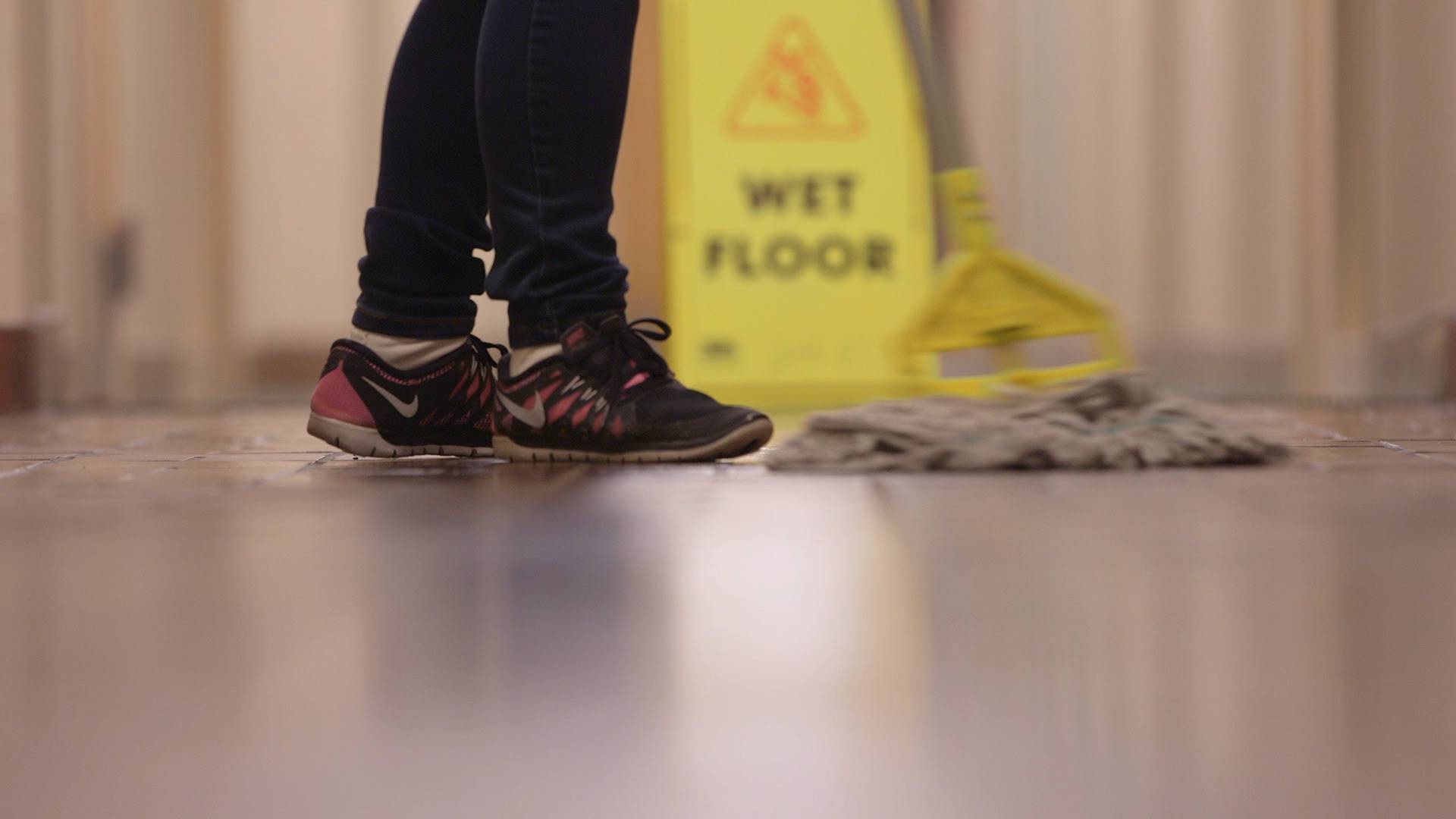Hernandez had reluctantly agreed to talk to us as part of an investigation we called Rape on the Night Shift. We spent 18 months working on the project with immigrant women janitors. We followed them as they cleaned buildings. We met their families and spent time in their homes. We built up trust so they would tell us some of their deepest secrets.
“I hit him with my broom,” said Maria Magaña, a janitor who told us how she was raped in the conference room of a bank in Bakersfield. “[my supervisor] said, ‘Maria, why are you so mad? What am I doing wrong? It’s just a caress. I’m just being affectionate.’ I told him, ‘You get any closer and I’ll hit you with the handle right now. I’m going to spray this cleaner in your eyes.'"
I talked to these women together with my colleagues Bernice Yeung and Daffodil Altan from Reveal at the Center for Investigative Reporting, and Andrés Cediel and Lowell Bergman from the Investigative Reporting Program at UC Berkeley. We produced a series of radio stories and a documentary film that aired on PBS and Univision.
The women who eventually agreed to talk with us said they wanted other janitors to know that they aren’t alone, that they don’t have to endure assault or unwanted touching from their supervisors as they push their cleaning carts through dark buildings.
Their message reached countless other janitors, inspiring them to speak up for the first time.
At a recent screening of the Night Shift documentary in Oakland, a group of women janitors rushed toward me to tell their stories.
I was both moved and surprised. It took us almost a year and a half to find women willing to share the horrible things that happened to them. And now I found myself surrounded by a semi-circle of women, jockeying for position to talk into my microphone.
“A lot of things happen at night on the job,” said Anabel Aguirre, who has worked as a janitor for 16 years and says she was raped at work. “We are the people who come in at dawn to clean the buildings, but there’s no one to tell us how to protect ourselves. Now we know that we can help each other, tell our stories, bring these things to life."
Aguirre’s daughter, Yamilex Rustrian, took the stage at the screening. “Knowing that she’s an immigrant woman, because she’s undocumented, they think this is right,” said Rustrian. “There is no excuse for rape, ever.”
Some of these janitors have decided to become promotoras, trainers and advocates for other janitors. Teaming up with rape crisis groups and women’s organizations, they’re teaching women about their rights and helping women connect to therapists.
On Sept. 12, 14 promotoras began a hunger strike on the lawn of the state Capitol. The hunger strike ended Sept. 15, when Gov. Jerry Brown signed Assembly Bill No. 1978 into law.
The bill was authored by Assembly Member Lorena Gonzalez of San Diego. She says she was inspired by our reporting, which revealed a loophole in the laws protecting workers. Abusive working conditions, including sexual violence, often go undetected at businesses that subcontract to other companies. Many cleaning companies are fly-by-night operations that subcontract, so abuse on the night shift can fly under the radar.
Gonzalez says that janitors “have worked far too hard and too long for their families, to go unseen and unnoticed.” She says the purpose of the bill is “to shine a light on this industry, and make sure that we hold building owners responsible for abuses.”
The law doesn’t address bigger changes in the janitorial industry like having cleaners work in pairs, so they’re never alone -- or training more women to become supervisors. But it does require sexual harassment training for all janitors -- not just their supervisors.
I have to say that, driving on the freeway these past few weeks and seeing billboards that said “Stop Rape on the Night Shift,” I’ve felt proud.
Not just of our work, but of the inspiring women who decided to tell us their stories. They bravely stepped forward to ensure that what happened to them, alone, in an empty office building, doesn’t happen to other women on the night shift.

